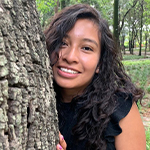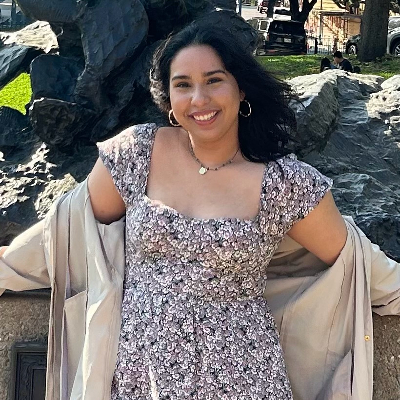Talismanín
Lismaninitaw maxi lakgachixkuwinanaw,
lismaninitaw talakgatsekgaw,
paksi ntu liluwan kinkamakgakglhayan
litekg litekg kinkalakawanikgoyan,
lilakgawitiyaw likgalhkgamanan kilakgastapukan
chu kintantunkan
¡Limaxkgan!
Kataxtuta ntanu ntani xuku tanupap,
kalakgstipataxtukgota sipi
chu kalilakgchi minchixit luwana tachuwin
chu kastáwa mintachuwin nima makgasankgapat
Costumbres
Estamos acostumbrados a obedecer,
a esconder el rostro, nos asusta todo del luwan
nos saca la lengua,
nos marea
juega con nuestros ojos
con nuestros pies.
Limaxkgan
abandona tu escondite,
sal ya de entre las piedras
y con tus cabellos enreda la lengua del luwan
y teje el diálogo extraviado de ti mismo.
Traditions
We are used to being obedient,
To hiding our face,
Everything about the luwa’n1 frightens us
The luwa’n stick their tongue out at us,
They make us dizzy
And play with our eyes
Play with our feet.
Limaxkgan2
Abandon your hideout,
Emerge from the stones
And entangle the tongue of the foreigner with your hair
And sew the disoriented dialogue of yourself.
Luwan
Chi wapi nakimputsaya nchali tuxama,
ni kintiputsaya wa kxtampin sipi,
ni para kxtampun kgalhtuchokgo.
Nitu klakgnuwaka kxliskayitwa kkalhtukunin
lala makatsinin taskgoyot.
Ni kintilakaputsaya wa kpuxkg
ni para kkaputlunin.
Nitu ktasekgnipulayan.
Lanchiyo klakgawanit, klatamaputun,
Lhtank kpixchipalh kintapikwa’
Klipixchukumakgnilh xmachita kintata.
Chu kwa mpi lanchiyó
Siin nawan kintachuwin chu namamuxti mintalakapastakni’
Extranjero
Si me buscas algún día,
no me busques debajo de las piedras,
ni en el fondo del río.
No estoy atrapado en el color de la espina
como te lo ha dicho el taskgoyot.
Que tus ojos no me busquen en la barranca
ni en un charco de lodo.
No huyo de ti.
Hoy desperté con ganas de vivir,
tomé del cuello a mi miedo
y lo degollé con el machete del abuelo.
Me dije que desde
hoy mi voz será la lluvia que inundará tu pensamiento.
Foreigner
If you search for me one day,
Don’t search under the stones,
Or at the bottom of the river.
I am not confined in the color of the spine
Like the taskgoyot3 has told you.
Don’t let your eyes search for me in the ravine
Nor in a puddle of mud.
I am not running away from you.
Today I awakened with the desire to live,
I grabbed my fears by the neck
And cut their throat with grandpa’s machete.
I told myself that starting today
My voice will be the rain that will drown your thoughts.
Putaknun
Kchilh uyanu kaktsu kachikin
tani akgtó wi putaknun.
Chali chali tlakg lakgtlanka wankgoy,
makgatunu makawán litalatna’
matankgalakan kgantum kiwi’
chu taxapay kgantum tiji’.
Chalhuwata kamanan
tikiya aknukgoy wa uyanu kkachikin,
nalhxawa ti kalitsintapulikgoy kkatijinin
nalhxawa xakgalhkgamananin lakchajan
nti chakganankgoy kkgalhtuchokgo.
Kaa tankgakgatit chiki’ puwilakgoka
uyanu k’aktsu kachikin,
xlimokgwa lakslipninkawan wa xchikkan
xalakgsputni xlakgskgatankan
antá kxkputaknunkan.
Uyama kamanan,
kputaknun takgskgolh xtakgtsiyajatkan
ntu xputsamakgolh kkakilhtamakú
chu nalh lilipuwankgo
palha namakgnipalakgokan amakgtum.
Cementerios
Llegué a vivir a este pueblo
donde se alzan dos cementerios.
Crecen sus bocas cada día,
cada que bailan las balas
se tumban árboles
y se borran caminos.
Son más los jóvenes en el cementerio
más que las risas en las polvorientas calles
y jolgorios de mujeres lavando en el río.
La gente de este pueblo
vive en casas de adobe y carrizo
y sus hijos reposan en pequeños castillos,
tumbas de azulejo.
Ahí, hallaron una paz
anhelada en el tiempo
y descansan serenos
de ser asesinados de nuevo
Cemeteries
I came to live in this town
Where two cemeteries stand.
Their mouths grow everyday,
Every time the bullets dance
The trees are toppled
And their paths erased.
There are more youths in the cemetery
More than the laughs in the dusty streets
And the cheerfulness of women doing laundry in the river.
The people of this town
Live in houses of adobe and straw
And their children rest
In minute castles
Tombs of tile.
The people found peace there
A peace yearned for for years
And rest in the serenity
Of not being murdered again.
Xnin kachikin
Cha uyanu kkaktsu kachikin
laktsina xmakanin maa nin
nakalinin xlatamat
laktlanka kgalhi xtantun
chu akglhuwa kgalhiy xlakgastap.
Cha maa nin uyanu kkachikin
nalh pukgalhkgalhikan xasasti xtikat
nipara xasasti tatawanu’
nipara xasasti akgpakgat.
Nalh likgalhkgalhitawilakan
xa’akgamuksun kabin
xlimokgo talalakaukxilhkani kgastin
laa ntatsekga chichini’.
Nalh kati’akgpixtini lanchin
nalh minkumpari tlawayan
chuwa ni waniyan
chilha minkilhtamaku.
La muerte del pueblo
Aquí en este pueblo
la muerte tiene las manos pequeñas
tiene una vida mortal
pasos grandes
y un millar de ojos.
En este pueblo, la muerte
ya no se espera en un petate nuevo
ni con huaraches nuevos
ni sombrero nuevo.
No se espera
con una taza de café humeante
mirando el rostro de la montaña
mientras se enfrasca el sol.
Ya no llega y te abraza
ni te llama compadre
ni dice
es turno de venir conmigo.
Death of the Town
Here in this town
Death has small hands
It has a mortal life
Wide steps
And a thousand eyes…
In this town, death
Is no longer anticipated with a new petate
Or with new huaraches
Nor a new hat.
It doesn’t wait
With a smoky cup of coffee
Looking at the face of the mountain
While the sun is hiding.
Death no longer hugs you when it gets here
Or calls you compadre
It doesn’t even say
It’s your turn to come with me.
1 In Tutunakú, this is the word for “foreigner.”
2 Tutunakú expression for “peasant.”
3 Evil dwarf or elf in Tutunakú.
Translated from Tutunakú to Spanish by Cruz Alejandra Lucas Juárez
Translated from Spanish to English by Andrea Heredia-Ortiz
Poems from Xlaktsuman papa’ / Las hijas de Luno (Puebla: Fundación Universidad de las Américas, 2021)





